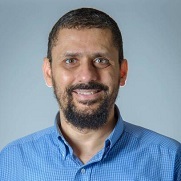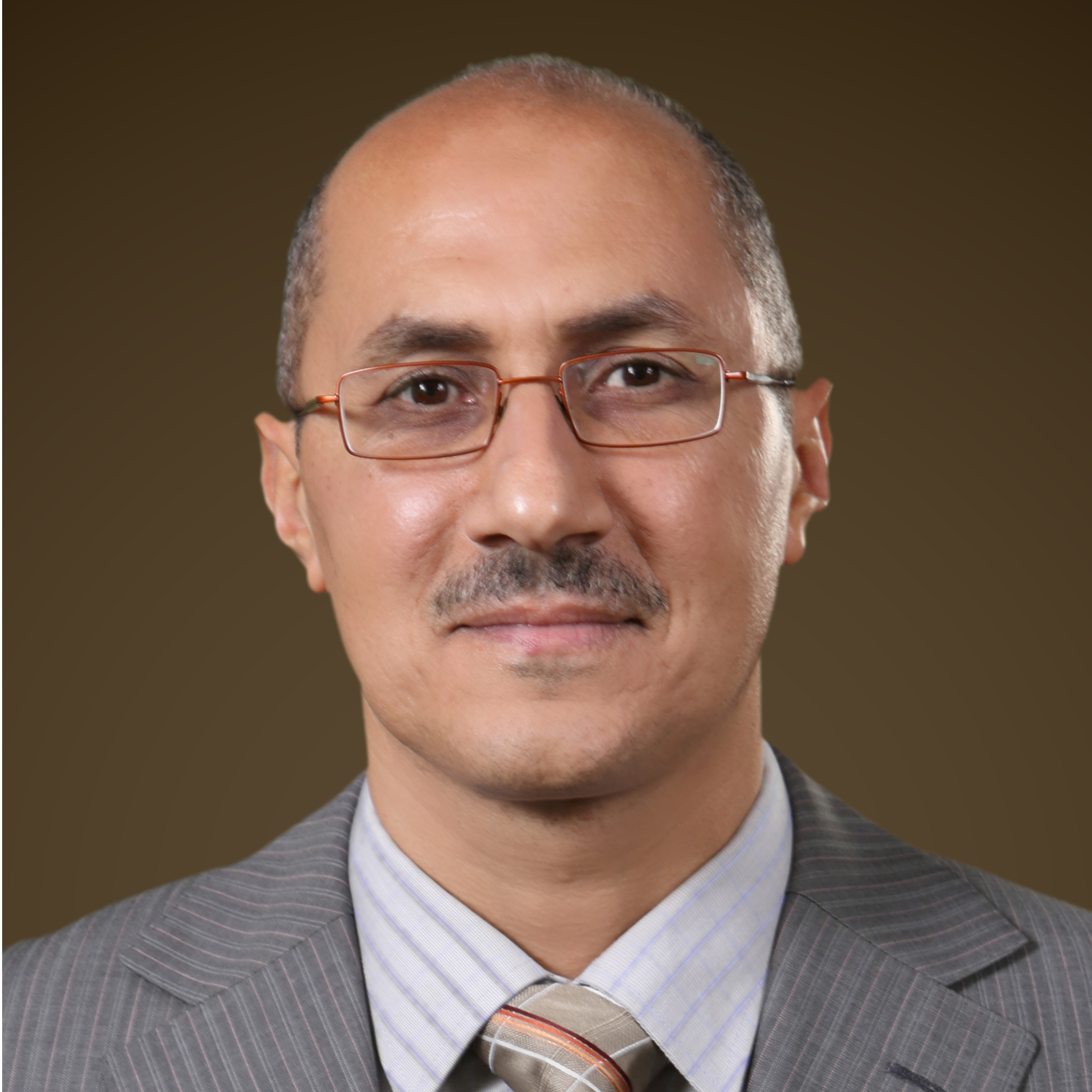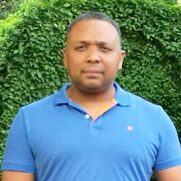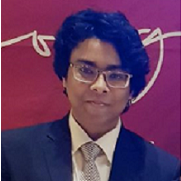Try the RESTful Web API
You can try all Farasa modules through Web API in the blow textarea. However, we force some limitations on portions of text you try and on the number of trials.
Farasa is the state-of-the-art full-stack package to deal with Arabic Language Processing. It has been developed by Arabic Language Technologies Group at Qatar Computing Research Institute (QCRI) It has a RESTful Web API that you can use through your favorable programming language.
Try Now Use Web API Download nowUser
Universities & Institutions
Downloads
API calls
| # | Package | Time |
|---|---|---|
| 1 | Farasa | 129 SECs |
| 2 | Qatara | 18 MINs |
| 3 | MADAMIRA | ~2.5 hours |
We provide many ways to use Farasa. To name a few, You can:
When you purchase this template, you'll freely receive future updates.
Clear Documentation + How-To section You can easily read, edit, and write your own code, or change everything.
Clear Documentation + How-To section You can easily read, edit, and write your own code, or change everything.
We support Windows 10, Mac OS, every Linux distro which let us cover over 98% of OS market.
Farasa source code is available to download. You can change and build your own modules as long as it is for Academic and/or research purposes.
QCRI FARASA package for processing Arabic text is being made public for research purpose only.
For non-research use, please contact us.
You can try all Farasa modules through Web API in the blow textarea. However, we force some limitations on portions of text you try and on the number of trials.

We provide a Web API for every Module of Farasa. We provide samples of Python, Java, Javascript and Curl code to show how to use our API endpoints.
We save you the hassle of downloading and installing the software on your machine and taking in consideration how thin the client machine might be.
The Web service API is totally free of charge. You just need to register for security reasons and start using the API with your favorable programming language.
Join by filling the form in the registration page in this Farasa Website.

Go to your registered e-mail and you will find your API key. You can now Login and go to your profile to view your API usage.
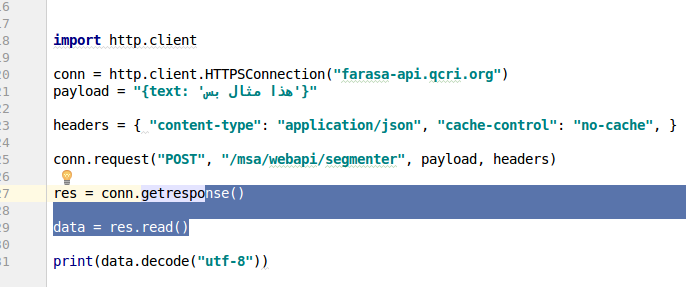
Once you logged in, go the desired Farasa module and Find Web API section in the Page. Select the language tab you want and copy the source code snippet into your IDE or whatever.
And horey you are DONE! :)
We provide snippets for Python, Java, Javascript and Curl.
As with RESTful Web API, you need to register your information before allowed to download the targeted module. If you already registered, just login.
Just fill in the login information and signin. Login
After login, go to module page, click download link, and the download will start automatically.
